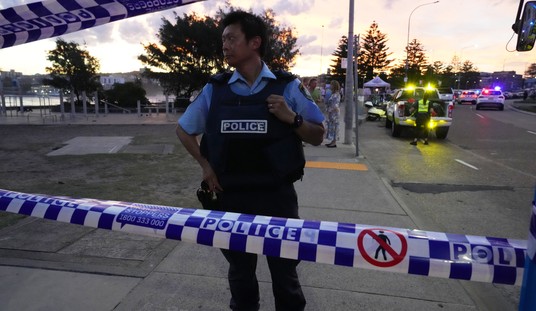Both U.S. policy and Middle Eastern Islamists have repeatedly held up the “Turkish model” as an ideal. As early as 2002, the Bush administration supported the Justice and Development Party (AKP) as a model for democratic “moderate Islam.” Recently, State Department spokesman Mark Toner called Turkey an “Islamic democracy” in action.
During the last year, Western governments and mass media have urged new, post-revolutionary Arab governments to follow the ‘Turkish model” as a way of achieving a moderate democracy. The problem with this approach is that the Turkish model is not so moderate, democratic, or admirable.
Since achieving power almost a decade ago, the AKP has built, step-by-step, a Putin-style permanent regime by knocking over institution after institution, changing laws to give itself more power, and intimidating opponents.
Now, the last two surviving institutions have received this treatment. Top military officers were forced to resign, and scores have been arrested and imprisoned on flimsy charges. In 2010 the AKP pushed through a series of constitutional amendments that included increasing the number of members in Turkey’s Constitutional Court — its equivalent of a supreme court — from eleven to seventeen, allowing the AKP to achieve a majority of its own supporters. The size of the Supreme Board of Prosecutors and Judges (HSYK), the body that approves judges and prosecutors, was increased from seven to twenty-two appointees. AKP filled the positions with partisans, ensuring itself absolute power over the judiciary branch of government in Turkey.
Under the AKP, Turkey has become a world leader in imprisoning journalists, students, and politicians of opposing viewpoints exercising their rights to free speech. According to the International Center for Prison Studies, the number of people in Turkey’s prisons doubled between 2006 and 2010. Close to half of them are being held without trial.
According to the World Economic Forum’s 2011 “Global Gender Gap Report” measuring the gap between men and women in economic participation, educational attainment, health, and political empowerment, Turkey bottomed at 122 out of 135 — down from 106 in 2006, and heading in the direction of Saudi Arabia. Consistent with this finding, Social Watch — an international network of citizens’ organizations — has stated that “Turkey’s record on gender equality is inadequate and has substantially worsened under the Justice and Development Party (AKP).”
How can one party singlehandedly cause so many detrimental changes yet repeatedly win three elections over a decade with increasing voter support? Turkey’s 10 percent minimum threshold for getting seats in parliament inflates the leading party’s representation. The AKP came into office with close to a two-thirds’ majority on the basis of about 30 percent of the vote.
One key advantage the AKP has enjoyed is a relatively successful Turkish economy. And since Western governments and media don’t criticize the regime, it can claim that it has increased Turkey’s prestige and power in the world.
But central to this strategy is the conquest of all national institutions, like the mass media. In 2009, for example, the Dogan Media Group — one of the largest media enterprises to be accused of being “anti-government” — was slapped with a tax fine of about $3 billion, an amount that exceeded its market value. The fine is held over its head as a way of achieving a more positive stance toward the government.
AKP appeases its core contingency by arranging the sale of public and other key businesses to supporters. It has promised, but not delivered, many things, like improved health care and education. For instance, doctors have been forced to work only in government hospitals, and are given quotas that often give them five minutes per examination and three minutes to fill dental cavities if they want to meet production quotas and receive a full salary.
Enough “pro-Western” foreign policy steps have been take to ensure continued U.S. support, yet many of the regime’s policies — like its close relationship to Iran, support for radical Islamist groups, and hostility toward Israel — run counter to U.S. and Western policies. The human rights issues within Turkey are largely ignored.
If the current Turkish regime is the model for the entire Middle East or Muslim world, this is a rather questionable model. While the United States has been self-critical about past support for dictators, the Turkish model is likely to give it new, albeit elected, dictatorships to support.









Join the conversation as a VIP Member